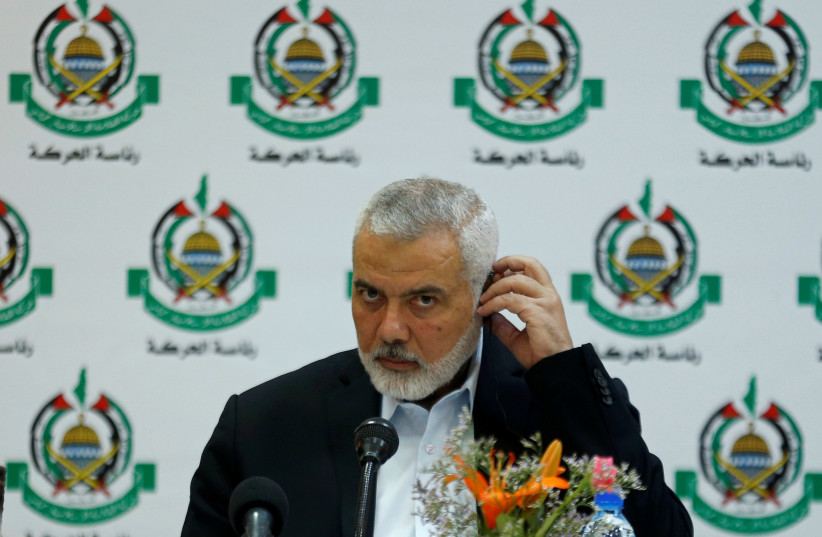In the wake of the October 7 attack by Hamas, many worldwide were awaiting a collective global stance against terrorism.
Al-Azhar, Egypt’s prestigious Islamic institution, had the chance to prove itself as a beacon of tolerance and humanity, rooted in Islamic law. Regrettably, it chose to support Hamas’s horrendous massacre of innocent civilians.
Founded in 998 in Cairo as an academy for the study of Islam, Al-Azhar is a renowned institution with global influence. Over time, it has become a key factor in legitimizing the policies of various Egyptian regimes, including their stances on Israel. While Al-Azhar claims to champion religious moderation and lead the battle against religious extremism, some of its recent activities and declarations indicate a departure from these principles.
Under President Abdel Fattah el-Sisi, Al-Azhar has adopted a dual approach to extremism, actively opposing radical groups like the Muslim Brotherhood and ISIS, while simultaneously supporting violent movements like Hamas that engage in terrorism against Israel.
Communications with Hamas

Al-Azhar’s Grand Imam Sheikh Ahmed al-Tayeb, is a driving force behind this approach, as he maintains open communications with Hamas leaders and shows sympathy towards them.
The academic institution’s endorsement of Hamas’s October 7 attack, which resulted in the loss of over 1,400 Israeli lives, including babies and women, Jews and Muslims, is particularly troubling.
After the brutal attack, Al-Azhar issued a statement applauding what it called the “resistance efforts of the proud Palestinian people.”
Its stance not only ignored the atrocities committed by Hamas but also contributed to hostile public sentiment in Egypt, resulting in the shooting and killing of three Israeli tourists in Alexandria.
The most alarming development is Al-Azhar’s fatwa stating that “Zionist civilians on occupied land do not [at all] qualify the description of ‘civilians;’ they are occupiers of the land, usurpers of rights, deviants from the path of the prophets.” Such rhetoric essentially legitimizes violence against Israeli civilians and serves to escalate regional tensions.
Additionally, Al-Azhar is no stranger to employing antisemitic motifs. During the war, it depicted the “Zionist enemy” as a “bloodthirsty wolf,” relishing in “eating the flesh and drinking the blood” of children, women, and the innocent. Furthermore, an Al-Azhar scholar called for boycotting international companies owned by Jews and advised against working with Jews, labeling them as “treacherous people.”
Several measures could help realign Al-Azhar
SEVERAL MEASURES could help realign Al-Azhar with its intended role in countering radical Islam and terrorism.
• Calling on Egypt to restrain Al-Azhar: Israel, the United States, the Vatican – which maintains good relations with Sheikh Ahmad al-Tayyeb of Al-Azhar – and moderate Arab countries, such as Saudi Arabia and the UAE, should insist that the Egyptian government exert its influence over the institution to stop its spread of belligerent messages. Egypt might consider legislative changes to gain greater oversight of the policies of Al-Azhar’s grand imam.
• Undermining Al-Azhar’s global reputation: Israel and its international allies should raise awareness regarding Al-Azhar’s failure to promote tolerance and counter extremism, as well as its endorsement of a pro-Hamas stance. Until Al-Azhar modifies its policies and rhetoric, international state and non-state actors should re-evaluate their engagement with the institution and its leaders.
• Disrupting Al-Azhar’s funding: Financial backers of Al-Azhar, including Egypt, the UAE, and other international actors, should reconsider their support of the institution. Funds provided to Egypt for counterterrorism efforts could be contingent upon restraining Al-Azhar’s harmful conduct.
• Al-Azhar’s reexamination of its policies: The institute would do well to reestablish its role as a bridge between religions and peoples, instead of promoting violence and animosity.
For instance, it could leverage its positive relations with Hamas to aid in the release of Israeli and foreign hostages, including women, the elderly, and children, who were kidnapped by Hamas in violation of the basic principles of humanity and Islam.
In conclusion, addressing Al-Azhar’s support for Hamas goes beyond regional security. It is a moral imperative.
It is time for Egypt and the international community to take a stand against this dangerous attitude that contradicts the aspirations of Jews, Christians, and Muslims alike for a more peaceful and stable Middle East.
Dr. Ofir Winter is a senior researcher at the Institute for National Security Studies (INSS), Tel Aviv University.
Dr. Michael Barak is a senior researcher at the International Institute of Counterterrorism (ICT) and a lecturer at the Lauder School of Governance, Diplomacy and Strategy, Reichman University.
